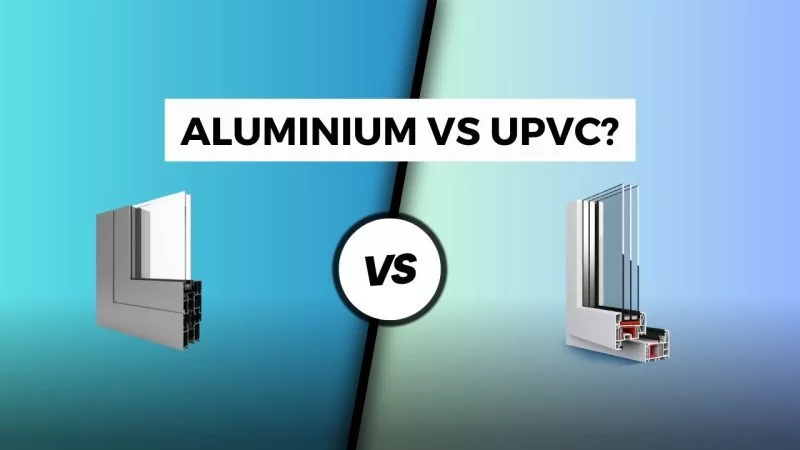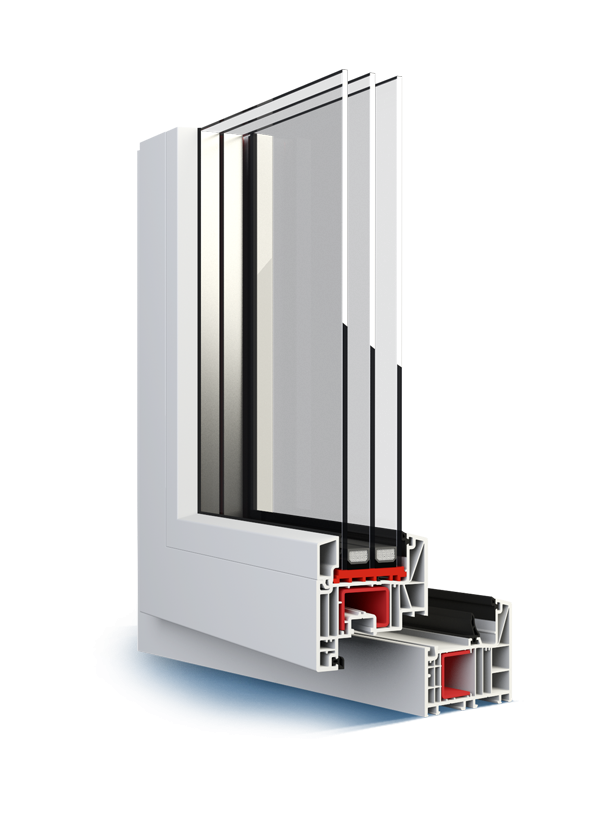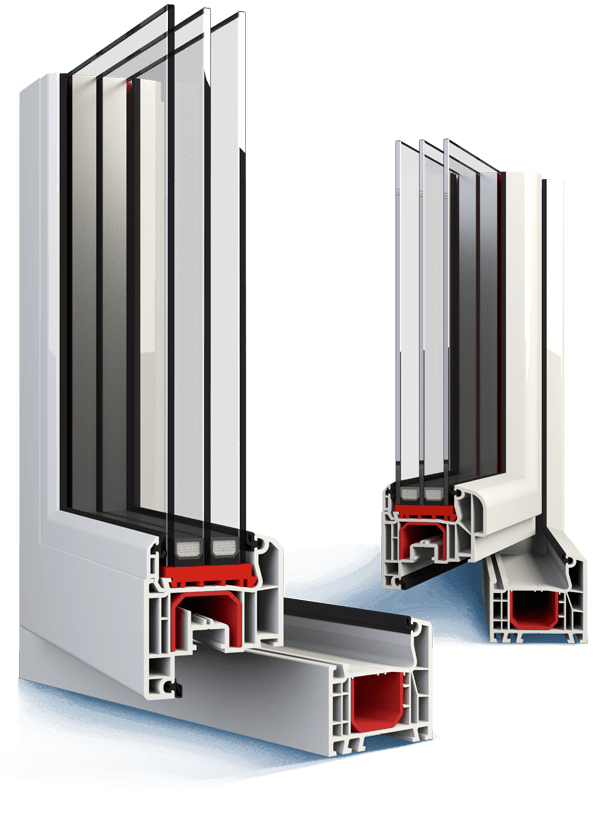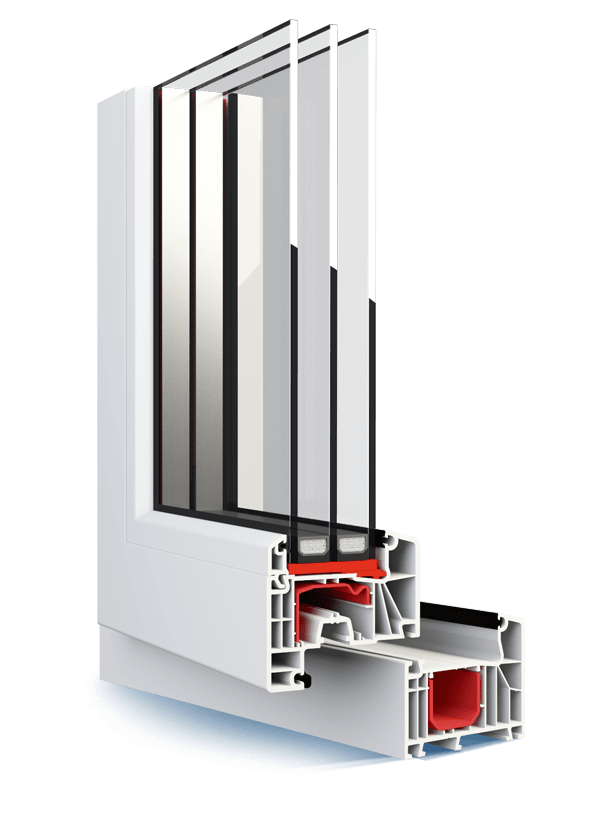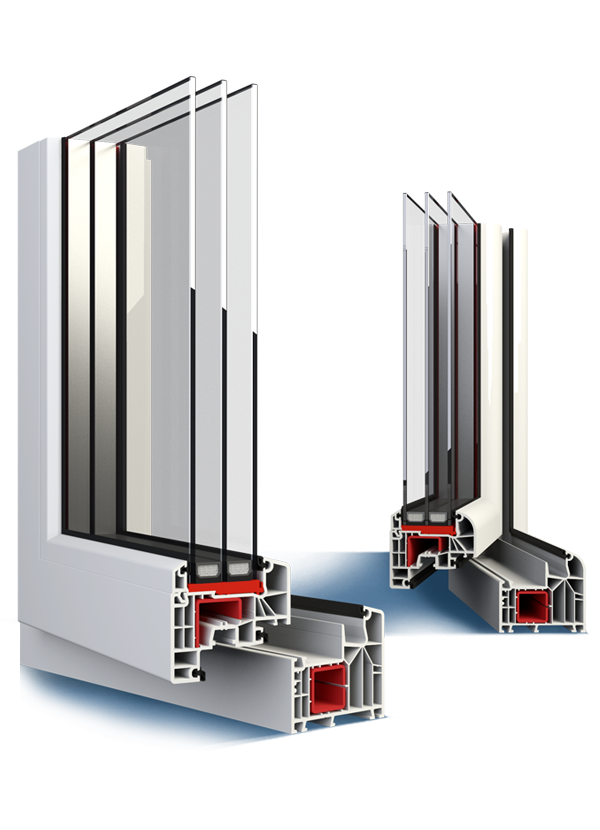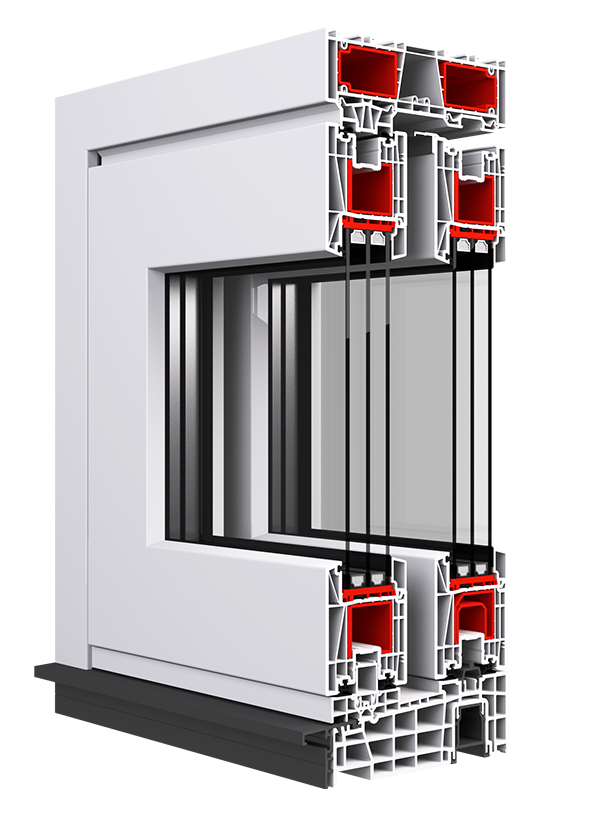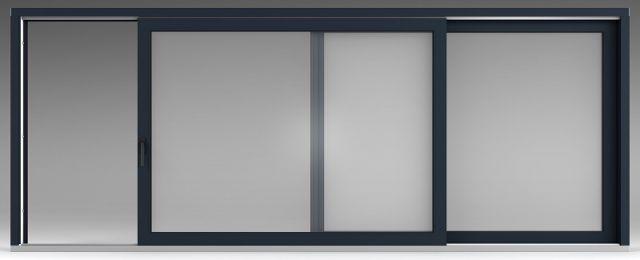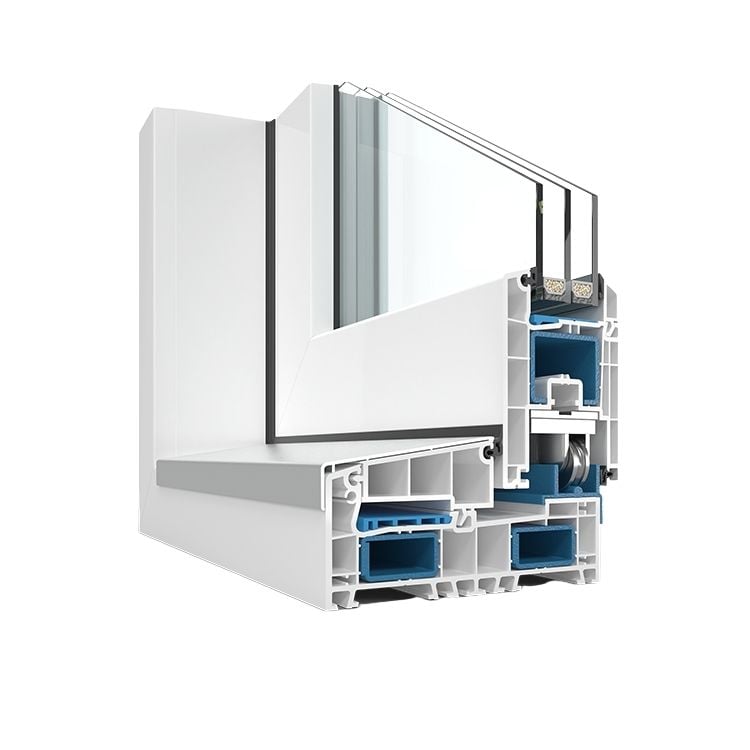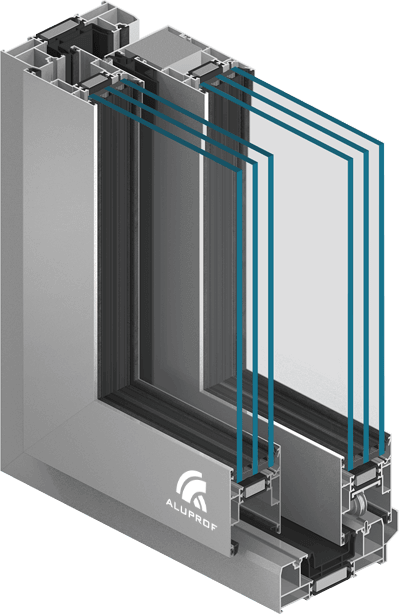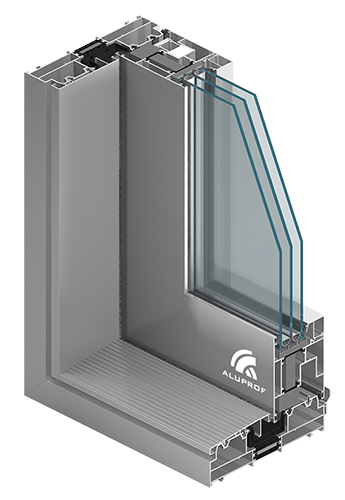In the field of house joinery, there have always been some long-debated issues. One of them refers to the distinction between the popular window and door materials: uPVC vs aluminium – which is best? What is the difference between uPVC and aluminium windows or sliding doors made of these materials and how should this influence our joinery purchases? Obviously, while buying windows and doors, you want to make sure that they will not only add curb appeal to your house but also serve you for years to come. Looks, durability and cost savings – generally, these are the most important factors influencing one’s purchasing choices. At Fenbro, we want to make the latter as easy as possible for you! That’s why we have prepared this article – to serve as guidance for you in deciding between uPVC and aluminium windows. We hope it will help in choosing the right sliding doors, too. Have a good read!
uPVC vs aluminium – what to choose?
Answering the upper question might be as difficult as choosing between pizza and ice cream – both of them have some obvious benefits and clear differences that make them quite impossible to compare. That’s why most customers focus on the price difference between uPVC and aluminium windows and basing on that, they try to make their purchase decisions. They want to be sure that available material options do not only match their needs best but also minimise the risk of investing poorly. However, in the comparison of uPVC vs aluminium sliding doors (and the same refers to windows!), there are no easy answers. The reason is that both materials are excellent options for a new build as well as replacement – and there are several pros and cons to each type.
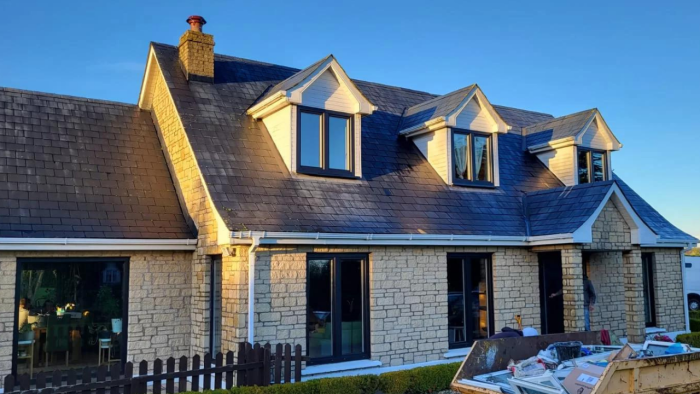
Similarities between uPVC and aluminium windows and doors
Before we start highlighting how uPVC and aluminium differ, we’ll show you the aspects in which they quite nicely correspond. Because you have to know that in some ways, uPVC and aluminium windows and doors are pretty much the same. It’s not what you’ve been expecting, right? Well, let yourselves be surprised! Both window and sliding door materials share the following qualities:
- Maintenance: both materials are strong and durable, neither have a tendency to rot or warp, and they require a very low level of overall maintenance – one shouldn’t need anything other than a microfiber cloth or soft sponge and washing up liquid and water to get the cleaning job done.
- Durability: Both uPVC and aluminium have extremely long lifespans. uPVC frames start to degrade only after more or less 30 years and aluminium frames can last up to 50 years.
- Energy efficiency: uPVC windows and sliding doors provide excellent thermal efficiency, as uPVC has been considered a fantastic material to use for insulation purposes. Aluminium, on the other hand, has long been considered as a much worse insulator as it is a highly conductive material (so it’s easier for heat to pass through). However, thanks to the so-called thermal breaks in the frame and triple-glazing units, premium models of aluminium windows and sliding doors are nowadays characterised by standard-exceeding tightness and insulation performance, dedicated to energy-efficient and passive constructions.
- Ecological friendliness: when comparing uPVC windows vs aluminium windows, one easily finds out that both options are eco-friendly to the similar extent. uPVC can be recycled up to seven times and has a lifespan of 140 years and aluminium is highly recyclable with minimal processing.
- Extra level of customisability: both uPVC and aluminium frames can be customised with custom colours, accessories, hardware and glazing to create the space you really want.
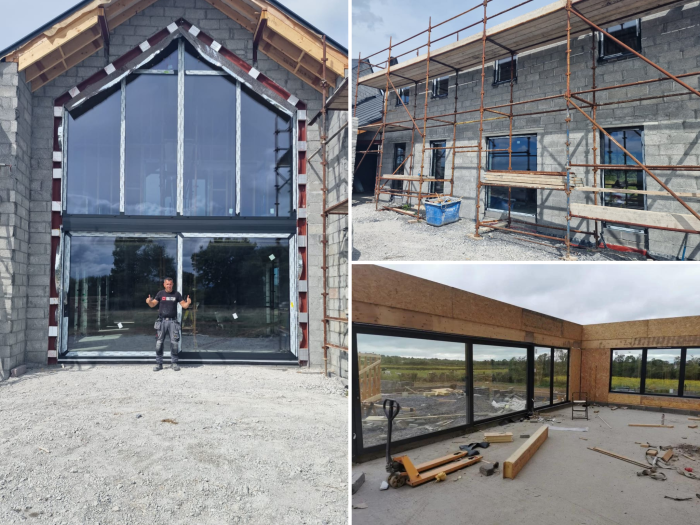
Finding a difference between uPVC and aluminium windows
As results from the above paragraph, similarities between these two types of window and door materials make it impossible to state that one is simply better than the other. At Fenbro, we generally advise our customers to go for the joinery products that best align with their priorities and personal preferences. So if you’re struggling to reach a decision regarding aluminium windows or uPVC counterparts, take a look at their most important differences.
uPVC windows and sliding doors
uPVC is best when you opt for an affordable and reliable outcome. Here, the cost difference between uPVC and aluminium windows plays an important role. Mostly, uPVC is less expensive than aluminium as it is cheaper to produce and install than aluminium, which requires a more complex manufacturing process. In fact, the price of an aluminium window can be even 3 times higher than in the case of its uPVC counterpart with similar insulation parameters. Generally, aluminium window and sliding systems with the U-value (heat transfer coefficient) higher than 1.0 are at least 40% more expensive than the uPVC models.
Thanks to its cost-efficiency, uPVC sliding doors and windows are a much better option when you have a lot of joinery to fit. What is more, when you are planning to replace windows or sliding doors in the building which does not meet the criteria for energy-saving constructions (the so-called “passive houses”), it is a much better solution to use more economical uPVC windows with standard insulation parameters – rather than the excellent ones.
What’s interesting, uPVC has better soundproofing properties than aluminium. Its non-conductive qualities make it ideal for absorbing sound waves and as a result, noise does not travel through UPVC very easily. And despite the fact that powder-coated aluminium windows and doors are rust-free, uPVC frames will perform much better in the harsh coastal conditions due to their corrosion resistance features.
Aluminium windows and sliding doors
Aluminium is a very sturdy and long-lasting window type material. Are aluminium windows more expensive than uPVC? Yes, but their higher price results from the outstanding longevity. Aluminium joinery is simply a long-term investment with enormous aesthetic advantages. Due to its modern design and appearance, it is clearly a good choice for customers who have high requirements, a high budget and expect a premium product. However, remember that in the long run, you will be able to recover your investment as excellent thermal insulation properties of premium aluminium windows and sliding doors lead to lower energy bills. Besides, aluminium is clearly a symbolic window and door material of modern-day architecture. As it is light and mouldable, it can be used for making windows of numerous designs and sizes. And thanks to the ability to use any RAL colour (different colours can be used on both sides), you can easily personalise aluminium windows, according to your own needs.
Aluminium frames are generally much slimmer than their uPVC counterparts, which makes them ideal for panoramic windows where the view is important. You can choose the aluminium solutions with the frames hidden in the walls of the building, which gives a complete frameless effect. What is more, there are aluminium window models with a hidden sash, where it is difficult to distinguish between tilt and turn and fixed windows, when looking from the outside.
But although the aluminium frames are slim, they are also very strong and designed to support large panels of glass. Aluminium is characterised by high material stiffness. As a result, the structures can be up to 1/3 larger than in the case of the uPVC ones. It enables the use of very large single glazing of fixed windows or sliding systems. For example, aluminium sliding door systems offer a robust design that can take leaf weights of up to 200 kg and heights of up to 3000 mm. Such solutions allow for maximum daylight in any space with minimal aluminium profiles.
Which is better: uPVC or aluminium?
If we are to be honest, both materials are simply excellent, with great technical parameters and very strong benefits. No wonder that uPVC and aluminium windows and doors have been the most popular joinery types around the world for many years. However, your purchase decision will always depend on your property situation and your available budget. That’s why we strongly advise you to request a quote from us and simply chat or write to one of our window experts from Fenbro Sales Team. We always get 5-star feedback from our customers, whom we support in purchasing and fitting the best aluminium and uPVC windows and doors. Don’t hesitate and simply ask us what we can do for you and your property!

